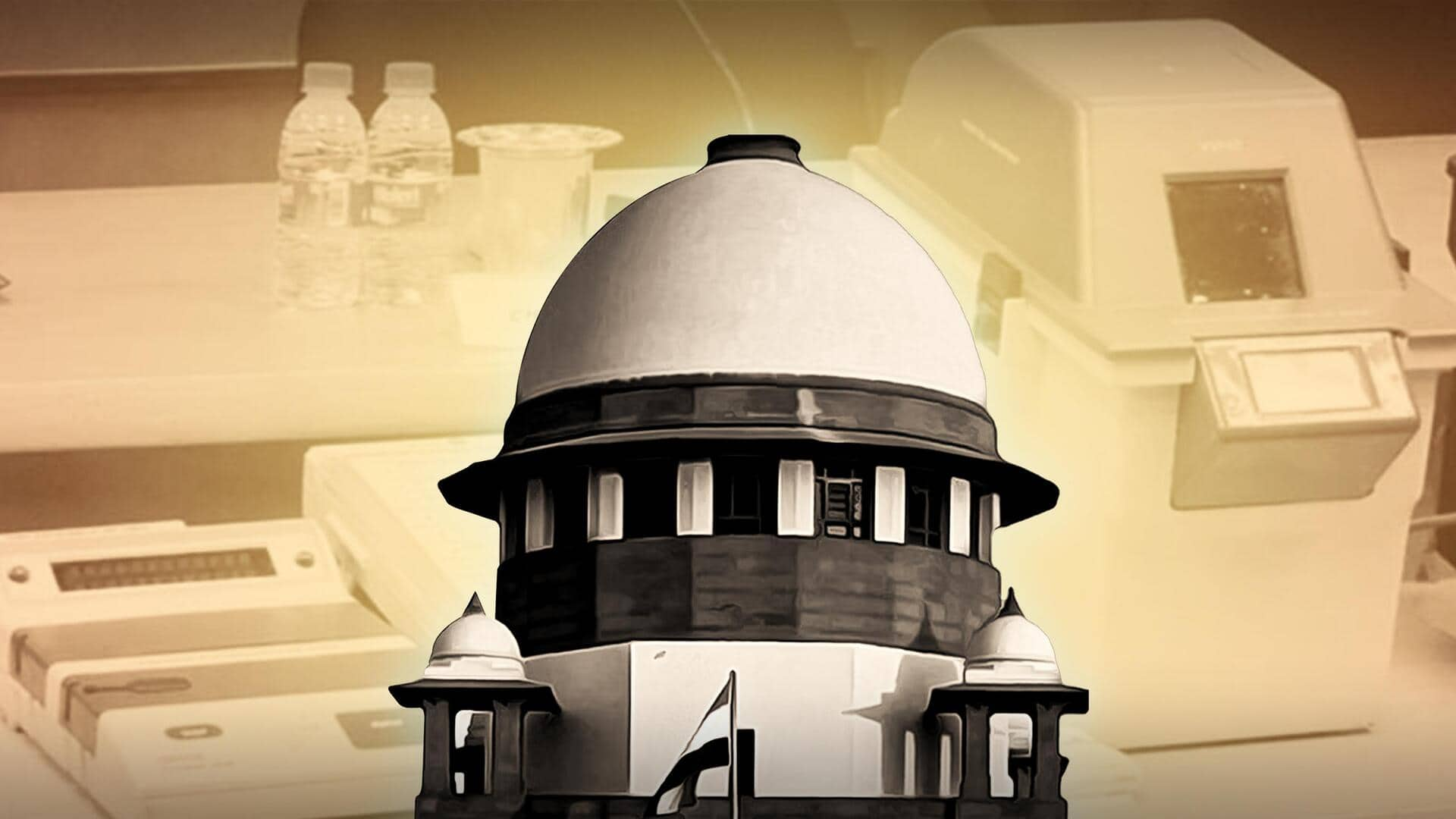
Supreme Court dismisses petitions seeking 100% verification of VVPAT slips
What's the story
The Supreme Court on Friday dismissed all petitions seeking 100% verification of votes cast through Electronic Voting Machines using the Voter Verifiable Paper Audit Trail (VVPAT) slips. The decision was delivered by a two-judge bench, comprising Justice Sanjiv Khanna and Justice Dipankar Datta. "While balanced perspective is important, but blindly doubting a system can breed scepticism and thus, meaningful criticism is needed... By nurturing a culture of trust and collaboration, we can strengthen the voice of our democracy," Datta said.
Context
Why does this story matter?
The petitions—filed by the Association for Democratic Reforms (ADR) and activist Arun Kumar Agarwal—sought a more extensive verification process of the polled votes. Agarwal specifically requested that all the VVPAT slips be counted. The ADR petitioned the court to direct the Election Commission of India and the Centre to ensure that voters can use VVPATs to verify their votes. Currently, the ECI randomly verifies VVPAT slips of EVMs from five booths per assembly segment in a parliamentary seat.
During hearing
SC's 2 directions for the ECI
The bench delivered concurrent but separate judgments. The Supreme Court, however, passed two directions for the ECI. Justice Khanna ordered that the Symbol Loading Unit of EVMs be sealed after symbols are loaded on or after May 1, 2024 and stored for at least 45 days. After the declaration of results, a team of engineers will examine the burnt memory in the microcontroller of the EVM, as requested by candidates in serial numbers 2 and 3, he added.
Suggestions to ECI
'Bard code for parties, machine to count ballots'
Justice Khanna also requested the ECI to look into the suggestion for an electronic machine to count paper ballots and whether a bar code for each party could be included alongside the symbol. In the previous hearings, the petitioners—arguing in favor of paper ballots—had highlighted the case of European nations that went back to the ballot system for polling. The court had rejected the comparisons, noting that the challenges in the present case were different.
On Wednesday
'We can't control elections': SC
To recall, on Wednesday, the SC reserved its judgment in the case. During Wednesday's hearing, the apex court remarked that it cannot "control elections" and cannot dictate the functioning of the ECI. "The ECI has cleared doubts. We cannot change your thought process. We cannot issue a mandamus on the basis of suspicion," it said to the petitioners. Notably, the SC's judgment came on the day 89 constituencies are undergoing polling in the second phase of Lok Sabha elections.